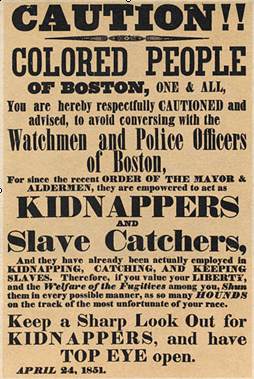Interlode in The Truman Prophecy on Nullification
 Nullification: The Rightful Remedy
Nullification: The Rightful Remedy
Sean was beginning to appreciate the Big Picture, Hiram Chance style. At the same time, he had already become one of Michigan’s leading young liberty activists—nom de guerre Shane Trejo—by focusing his energy on projects that produced nearer-term tangible successes. This was nowhere more true than in the nationwide effort to uphold the 10th Amendment of the Bill of Rights via an individual-state legislative process called Nullification.
| Interestingly, again as if destiny were taking a hand, Chance’s mother had passed along to Chance her uncanny political wisdom that federal tyranny—the publicized and rampant domestic evils, anyway—prudently were stopped by the states just saying “we’re not doin’ it.” |
The 10th plank in the Bill of Rights is exceptionally clear:
“The government has no power not explicitly listed herein.”
[Also per the 9th, “Even if the right is not listed, the people still have it.”] In practice the feds enact laws that give them ‘unenumerated’ powers. Nullification is the practice of a state(s) resisting and refusing to enforce such laws.
Origin: the Alien and Sedition Acts (1798) were passed under the administration of the second president, John Adams. The Acts were rebuked by the Kentucky Resolution (1798, 1799) and the Virginia Resolution (1798)—secretly written by James Madison and (then VP) Thomas Jefferson, respectively.
The principles stated in the resolutions became known as the Principles of ’98: Which are that 1) each individual state has the rightful authority to decide whether federal laws are unconstitutional and void, 2) nullification by the states is the proper remedy, and 3) the states have the right, individually or jointly, to interpose to prevent execution of unconstitutional laws.
The most admirable use of nullification lay in fighting the Fugitive Slave Laws. In the 1800s, slavery was enforced federally, yet many states impeded the capture and return of alleged fugitive slaves. This was deemed illegal by the Supreme Court,, who reaffirmed slavery in Prigg v. Pennsylvania (1842). Yet states, including Michigan, continued to apply ‘personal liberty laws,’ forbidding state officials to aid in slave-catching—effectively nullifying the Fugitive Slave Laws.
| Note: contrary to mainstream demagoguery, the South hated nullification. Indeed, South Carolina listed nullification as a major grievance in its declaration of secession. [Although nullification was used in the 1950s to justify racial segregation of schools.] |
Nullification is a just political tool in the hands of true liberty supporters, as confirmed by model legislation via the Tenth Amendment Center. Bills written vs.:
| 2d Amendment violations | Restrictions on growing hemp | ||
| Federal money monopoly | 4th Amendment violations | ||
| Nationalization of health care | Drones and illegal NSA spying |
Nullification is next cool citizens’ movement (300 bills introduced in 2015). ‘Anti-commandeering’ OK’d by SCOTUS. Chance’s mom is right, as usual: the people (via their state legislatures) end tyranny by lawfully refusing to comply.
This post has been read 1487 times!


